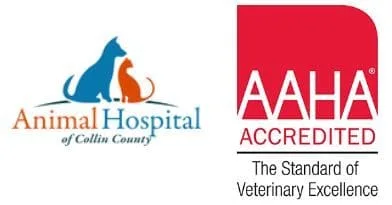As pet owners, our primary goal is to ensure the well-being of our furry family members. Providing comprehensive healthcare is a crucial part of responsible pet ownership, and sometimes this involves making important decisions for them. At Animal Hospital of Collin County, located in Allen, Texas, our dedicated veterinary team is committed to serving our community and ensuring that our clients are well-informed about their pets’ needs.
One common topic that often arises is pet surgery, specifically dog spaying, dog neutering, cat spaying, and cat neutering. These procedures play a vital role in controlling the pet population and offer numerous benefits for both pets and their owners. While spaying and neutering are beneficial, we understand that you might have questions or concerns about these procedures. Rest assured, we are here to provide the information you need.
1. What’s the difference between spaying and neutering?
Spaying and neutering are terms used to describe the surgical procedures that prevent pets from reproducing. Spaying refers to the removal of a female pet’s ovaries and uterus, making it impossible for her to become pregnant. Neutering, on the other hand, is the term used for the removal of a male pet’s testes, rendering him incapable of fathering offspring. Both procedures are commonly performed to prevent unwanted litters and can contribute to a reduction in certain health risks for pets.
2. When should my pet be spayed or neutered?
The ideal timing for spaying or neutering can vary based on the pet's age, size, and overall health. Generally, it is recommended that cats be spayed or neutered between 4 and 8 weeks of age to ensure they do not contribute to the pet overpopulation issue. For dogs, the timing can depend on their size and breed. Smaller dogs can be spayed or neutered starting at around 8 weeks of age, while larger breeds might benefit from waiting until they are between 9 and 12 months old. Consulting with your veterinarian will help determine the best timing for your pet.
3. Is spaying and neutering safe?
Any surgical procedure carries some level of risk, including spaying and neutering. However, these risks are minimal when performed by experienced veterinarians. At Animal Hospital of Collin County, we take every precaution to ensure the safety and well-being of your pet. Our veterinary team is highly trained in these procedures and utilizes the latest techniques and monitoring equipment to ensure a successful outcome and smooth recovery.
4. Will the surgery cause my pet to gain weight?
Concerns about weight gain following spaying or neutering are common among pet owners. However, with proper nutrition and regular exercise, spaying and neutering do not inherently cause pets to gain excess weight. It is essential to maintain a balanced diet and encourage physical activity to prevent weight gain and promote overall health.
Contact Animal Hospital of Collin County
If you are looking for a trusted veterinarian near you in Allen, TX, for pet surgery or any other veterinary services, we invite you to contact Animal Hospital of Collin County. We are always happy to welcome new patients and look forward to assisting you with your pet’s health needs. Our team is dedicated to providing compassionate care and ensuring that your pet remains healthy and happy.


